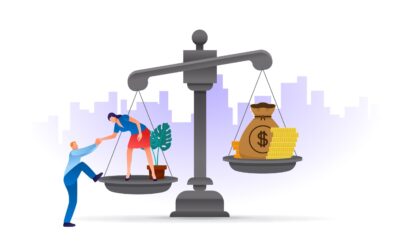Hello there, fellow Canadians! Today we’re going to talk about a topic that might not be on everyone’s radar, but could have serious financial consequences if ignored: the Underused Housing Tax (UHT).
If you own Canadian residential real estate in a corporation, partnership or trust (i.e., not personally), or if you own Canadian residential real estate and are neither a Canadian citizen nor a permanent resident, you may be required to file a UHT return by April 30th.
Even if your property is not underused or vacant, failing to file a UHT return can result in some hefty penalties. As a CPA and finance professional, I’m here to help you understand what is it exactly and what you need to do to comply with it.
So, what exactly is the Underused Housing Tax?
The UHT is a tax that was introduced in British Columbia in 2018, and subsequently adopted by Ontario and Manitoba, as a way to encourage property owners to put their properties to better use. The tax is levied on residential properties that are not being used to their full potential, such as vacant homes, empty lots, or properties that are only occupied part-time.
The UHT applies to residential properties owned by corporations, partnerships, and trusts, as well as properties owned by non-Canadian citizens and non-permanent residents. If you fall into one of these categories, you will need to file a UHT return each year, regardless of whether your property is underused or vacant.
What are the penalties for failing to file a UHT return?
If you are required to file a UHT return and fail to do so, you could be hit with some serious penalties. The penalty for late filing is $500, plus an additional $100 for each day the return is late, up to a maximum of $5,000 or $10,000 for owners who are not individuals. In addition, if you are found to be liable for UHT but do not file a return, you could be subject to additional penalties, including fines and interest charges.
If you need more clarity on the subject and wish to have them addressed through an expert, please book an appointment here .
So, what should you do if you think you might be liable for UHT?
First of all, don’t panic! The good news is that the UHT is relatively easy to comply with, especially if you have a good accountant or tax professional on your side.
If you think you might be liable for UHT, the first step is to determine whether your property is underused or vacant. If it is, you will need to calculate your UHT liability based on the assessed value of your property and file a UHT return by April 30th each year.
If your property is not underused or vacant, you will still need to file a UHT return, but your tax liability will be zero.
The UHT return along with the instructions can be found here.
In either case, it’s a good idea to consult with a CPA or tax professional who can help you understand your UHT obligations and ensure that you file your returns on time to avoid penalties. It is also important to note that this is a separate filing from your regular income taxes, which is also due on April 30th
In short, the Underused Housing Tax is an important tax that property owners in Canada need to be aware of. If you own residential real estate in a corporation, partnership or trust (not personally), or if you are a non-Canadian citizen or non-permanent resident who owns Canadian residential real estate, it’s important to understand your UHT obligations and file your returns on time to avoid penalties.
Disclaimer: This article is for informational purposes only and not intended to provide any tax or business advice. Thank you for reading, and please feel free to reach out to me or another qualified CPA or tax professional if you have any questions about the UHT or any other tax matters.











